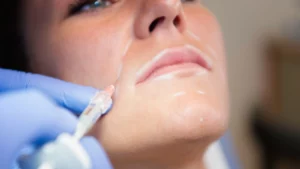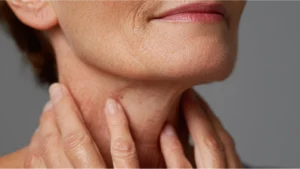Table of Contents
Smoking is a very commonplace activity today, even though it can have adverse effects on your health, inside out. While you may already be aware of the risk of lung damage and cancer, smoking any form of substances can affect your body in multiple ways.
Due to the convenient availability of tobacco, cigarettes and other smoking devices, it’s a habit that forms easily but is just as hard to let go of. Read on for everything you need to know about smoking and how the unhealthy habit can shorten your lifespan, accelerate aging and impact your quality of life on the whole.
Different forms of smoking

The most common form of smoking is undoubtedly cigarettes which are made of a combination of tobacco, nicotine and other harmful substances. Hookah or shisha is also a form of smoking tobacco using a water pipe.
Cigarettes that are hand rolled or herbal, infused with menthol or clove and cigars are all just as harmful. E-cigarettes or vaping devices may not have tobacco but they contain nicotine which also affects your body just the same and isn’t a better alternative to smoking an actual cigarette.
Chewing tobacco is another common form of consuming the substance, impacting your body in the same way as smoking it.
Is evey form of smoking dangerous?
Yes, no matter what newer-age cigarette alternatives may have you believe, every form of smoking is dangerous due to the chemicals they release into your system.
Tobacco and nicotine are the main culprits that impact your health in the short term and the long run with health concerns that are often irreversible. The only way to avoid those health complications is to not smoke at all, no alternative format of smoking can help you evade them.
Is flavoured hookah bad for health?

Flavoured hookah is often considered a recreational activity and is easily available at restaurants and cafes in a large number of countries around the world. While the flavours make it an appetising option, the harm it does is just as bad.
Hookah involves burning flavoured tobacco with charcoal and inhaling the substances together producing high levels of carbon monoxide and other cancer-causing chemicals.
In fact, just like a cigarette, the fumes from a hookah pot can also be harmful for the people around you, even if they aren’t actually smoking it themselves.
How does smoking damage the skin and lips?
Smoking has a host of effects on your skin, lips, hair and even your teeth. The smell of tobacco can easily settle into your hair and make them smell. The more you smoke, the longer the smell lingers and turns to an unpleasant odour.
The chemicals from tobacco can easily stain your teeth, causing them to appear yellow and unappealing in patches. The unhealthy habit can also dehydrate your skin, making fine lines, wrinkles and dark circles appear earlier than they otherwise would.
You may have often spotted smokers with dull and dark lips. Smoking and chewing tobacco both lead to darkening of the lips and take a lot of work with in-clinic procedures to lighten them or return them back to health.
Smoking can also increase the likelihood of fungal infection in your nails and can increase hair fall and can induce premature greying.
How does smoking affect the aging process of your skin?
Your skin naturally produces collagen and has a cell turnover rate to keep it looking fresh and youthful. As you age, the cell turnover process and collagen production both slow down, leading to visible signs of aging.
This, coupled with water loss with age also dehydrates your skin, making it appear duller. This is why your skin needs the help of topical skincare products to encourage collagen production and keep it hydrated and looking plump and firm.
When you smoke, the toxins dehydrate your skin and accelerate the process of skin aging by reducing collagen production and making your skin appear duller, further lose elasticity, and causing fine lines and wrinkles to show up much sooner than they should.
Developing smoking as a daily habit means that even if you sign up for the most advanced treatments to bring your skin back to health, you will keep diminishing the results by continuing to smoke.
Besides skin, what harm does smoking do to your overall health?
Smoking can affect your health in a number of ways impacting almost every possible vital organ.
Brain
While smoking may make you feel good in the moment, it can cause anxiety and makes you a lot more irritable if you don’t give in to the urge to continue doing it.
Nicotine is a mood-enhancing drug and while it gives you a rush at the time of consumption, it wears you out even more once the effects are gone, which is the primary reason why people find it hard to quit smoking.
Heart
Smoking can raise your blood pressure, increasing the risk of a stroke. It can also increase your heart rate and cause blood vessels to tighten, which restricts the healthy flow of blood, affecting the way your body functions on the whole.
You are also at a higher risk for blood clots and heart attacks if you smoke. In fact, smoking can also affect the people around you and put them at a risk of such heart conditions due to secondhand smoking.
Bones
The effect of smoking on your bones comes from the restricted flow of fresh, oxygen-rich blood through your body. The blood flow is what keeps your bones, muscles and joints in good health and helps them heal.
Smoking affects your body’s capacity to absorb calcium as well, weakening your bones and reducing bone density.
Immune system
Inhaling all of the toxins that come with even a single cigarette can heavily affect your immune system. Smoking can cause an imbalance in your immune system making you more prone to autoimmune diseases wherein your body starts to attack itself.
Lungs
Your lungs are the worst affected by smoking. It makes you extremely prone to lung cancer and is in fact the most common cause of death due to smoking.
You can also develop bronchitis and conditions like tuberculosis and pneumonia can get further aggravated if you smoke.
Mouth
Smoking can stain your teeth and also cause mouth cancer. It can weaken your teeth, lead to gum diseases, cause a buildup of tar and also give you bad breath.
Reproduction
Smoking can affect the fertility rate in men and women, making it difficult to get pregnant if you and your partner are trying to start a family. It also reduces your sex drive and your stamina.
If pregnant and exposed to smoke even in a secondhand capacity, the toxins can lead to your baby being born weak, with a possible ear infection, being born premature, there is a chance of a stillbirth and there is also the possibility of your baby not surviving for long after it is born.
Smoking and the risk of cancer
Smoking puts you in harm’s way by significantly increasing the risk of cancer which is known to be its worst effect on your health. Even if you only smoke a few cigarettes a day or only take to it occasionally, you are still susceptible to developing lung or mouth cancer.
The only way to reduce this risk is to not smoke—no smoking alternative or anything with reduced nicotine can help reduce this.
According to National Cancer Institute, “Tobacco use causes many types of cancer, including cancer of the lung, larynx (voice box), mouth, esophagus, throat, bladder, kidney, liver, stomach, pancreas, colon and rectum, and cervix, as well as acute myeloid leukemia.”
How can we reverse the damage done by smoking?
If you have been smoking for a very long time and often, it’s almost impossible to entirely reverse the damage done by tobacco, nicotine and other carcinogenic substances that you have inhaled along the way.
However, from the minute you have your last cigarette, your lungs will start to repair and heal themselves. How long the process takes depends on how long and often you have been smoking.
You can also include outdoor activity like simply going for a walk in fresh air to give your lungs access to clean oxygen. Consuming warm fluids and steam can help get rid of pent up mucus in your lungs and clear them out.
Over the weeks, months and years, your heart rate, blood pressure, lung function, sense of taste and smell and overall stamina will all start to improve.
According to Healthline.com, after 3 years of quitting, your risk for heart attack drops to that of a non-smoker and after 5 years, your risk for developing lung cancer is cut to half as compared to when you were a smoker.
What is the best way to quit smoking?
- There are multiple options available to you to get you started on your journey towards healthier life.
- Reach out to your general practitioner to help you with medication that can help reduce withdrawal symptoms caused by lack of nicotine in your system.
- Try a nicotine-replacement therapy like a smoking patch or chewing gums to help keep your nicotine withdrawals at ease.
- Join an anti-smokers group and talk about your habit with them and discuss reasons to quit. Talking to others who are on the same journey as you can help you cut back on smoking and prevent you from reaching out for a cigarette when you think you need it the most.
- Occupy yourself with other habits to replace all the times you find yourself wanting to smoke. Take up a workout routine, try art therapy, put time aside for a hobby you’ve wanted to pursue for a long time but haven’t been able to. Keeping yourself busy can go a long way in keeping your mind off the lack of nicotine in your system.
- Stay accountable to yourself by keeping a count of the number of days you go without a cigarette after planning to do so. Start small with a week, go up to a month, then a few months and before you know it, it will have been a year. To increase accountability, text your partner or a close friend everytime you go through another day of not smoking.
- Avoid going to places where you’re most likely to smoke, at least for a few weeks or months. Get comfortable with the idea of not smoking and then put yourself in vulnerable positions to test your will power. It all comes down to your will to want to change.
Benefits of quitting smoking
The benefits of quitting smoking undoubtedly outweigh the benefits of actually taking up the habit which are only restricted to a momentary uplift in your mood.
Once you quit smoking, your nerve endings that have been damaged will start to regrow, your sense of smell and taste will be better, the risk of heart disease reduces, blood flow in the body improves and your oxygen levels will also get better.
You will feel naturally energetic once you’re able to move beyond the withdrawals, your immunity levels will increase, you’ll notice an improved sex life and of course, the risk of cancer will be considerably lower.







